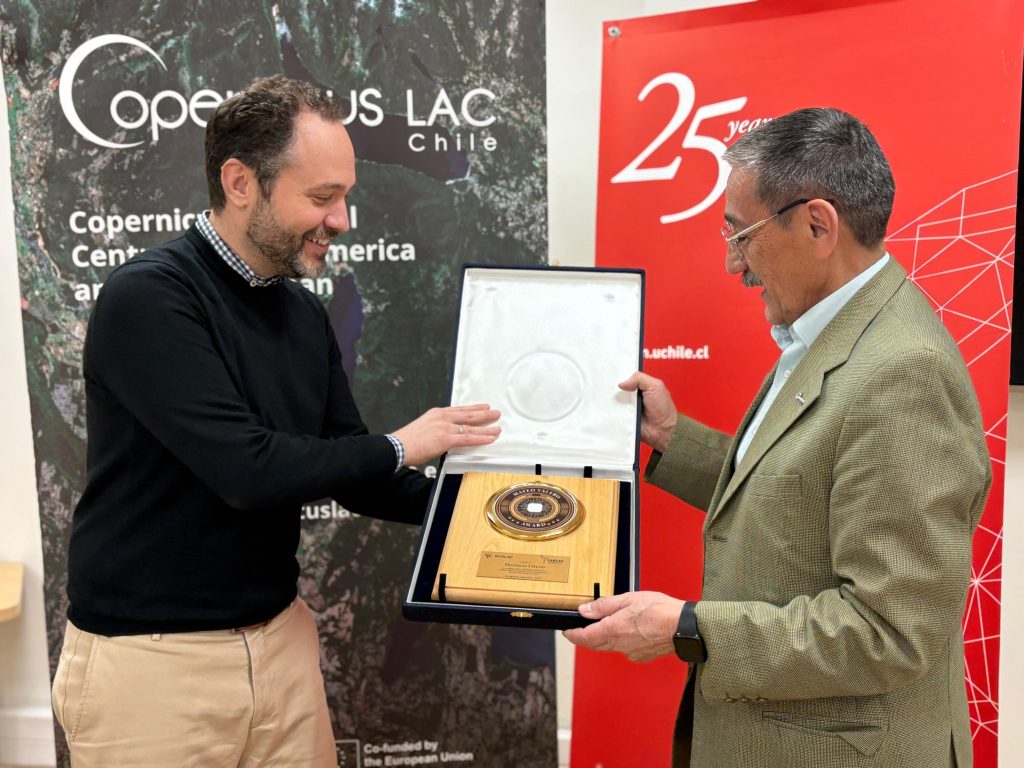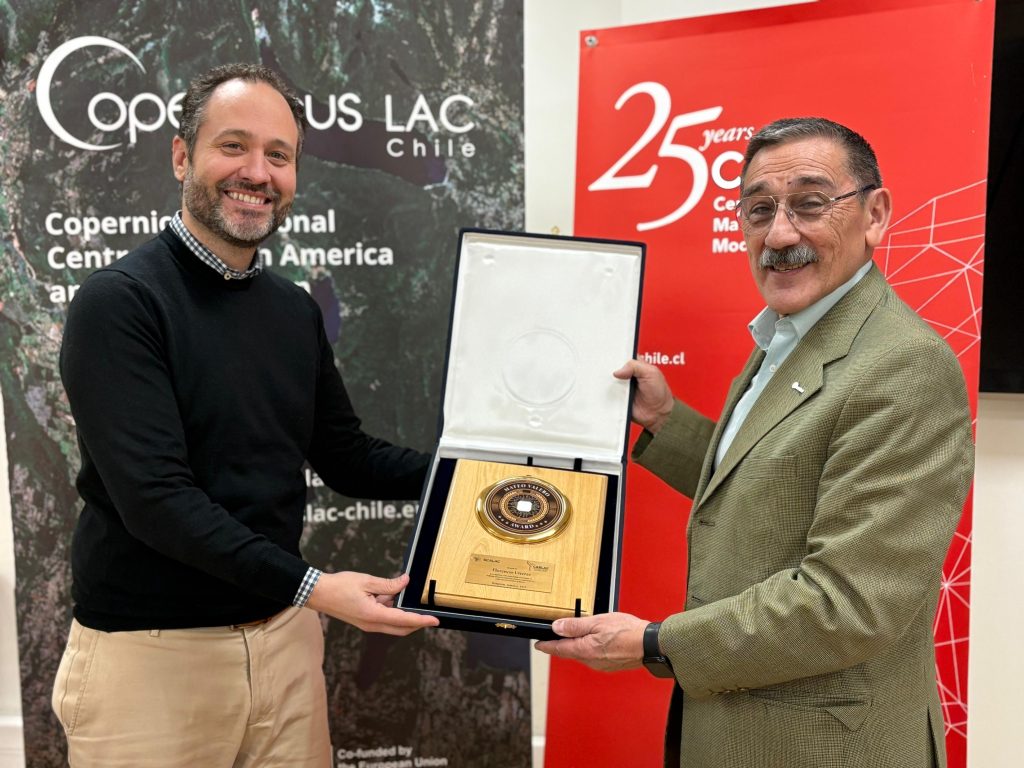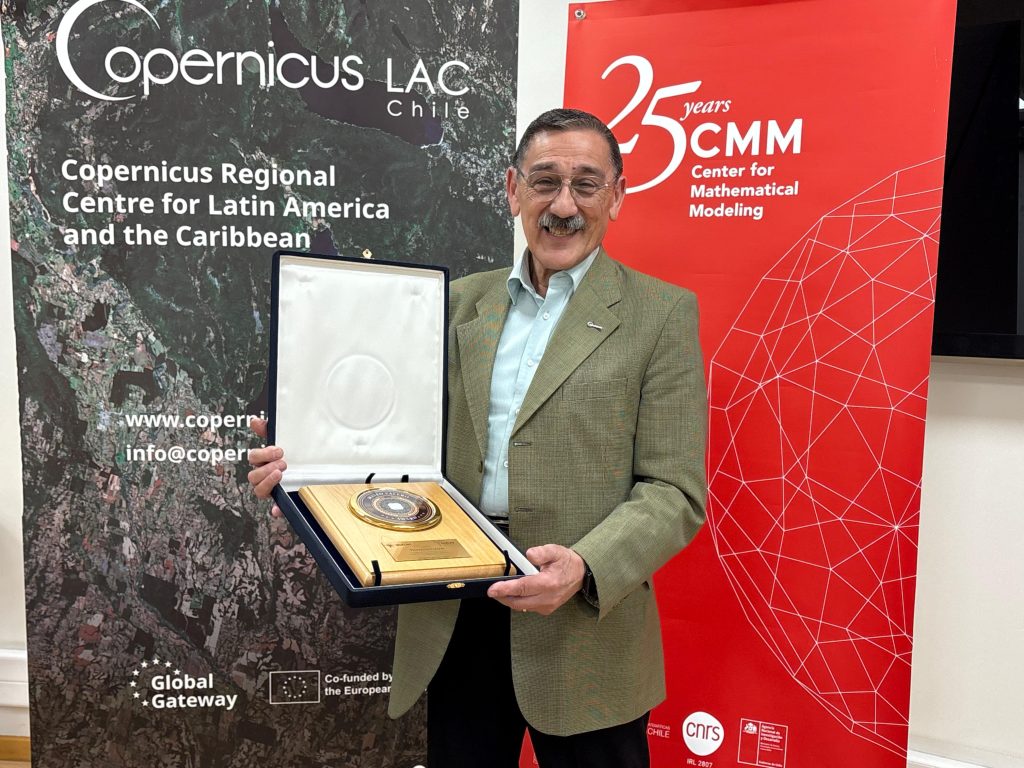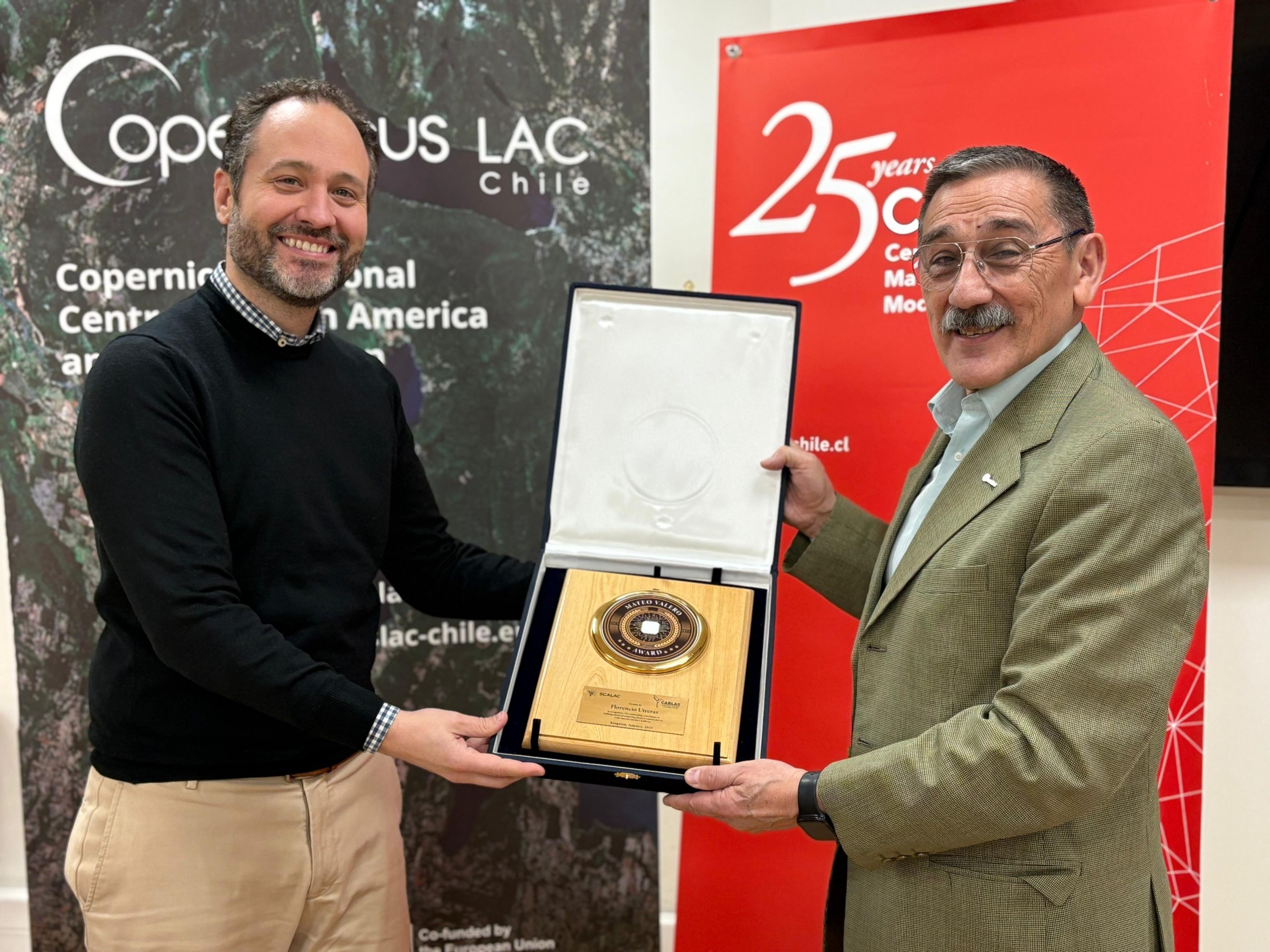Florencio Utreras, director of the CopernicusLAC Chile project, has been awarded the 2025 Mateo Valero Award by the Advanced Computing System for Latin America and the Caribbean (SCALAC). This recognition highlights his exceptional contribution and the remarkable impact of his work, which has positioned the region at the center of collaborative and educational research in advanced computing. His work as executive director of RedCLARA was key to strengthening ties between Latin America and Europe in this field.
The Mateo Valero Award is given to key players who have significantly promoted collaboration in science, engineering, and large-scale data analysis through high-performance computing (HPC). The award is selected by a committee composed of members of SCALAC, the CARLA steering committee, and prominent representatives of the Latin American advanced computing community.
SCALAC is a consortium of scientific and high-performance computing centers and researchers in Latin America, focused on organizing and integrating strategic infrastructure based on advanced architecture that includes high-performance computing (HPC) and high-productivity scientific computing.
This award was presented at the CARLA international conference, an event designed to promote the growth and strengthening of the HPC community. The award to Florencio Utreras highlights his leadership in building advanced computing research communities in the region, consolidating ties of collaboration and knowledge.
For its part, RedClara is dedicated to the development of “science, education, technology, and innovation in Latin America and the Caribbean through the articulation, connection, and strengthening of its national research and education networks” (RedClara, 2025).
Regarding this great recognition, the executive director of the National High Performance Computing Laboratory (NLHPC) of the Mathematical Modeling Center (CMM) at the University of Chile, Ginés Guerrero, commented that “Florencio’s vision was fundamental. He led the creation of the National University Network (REUNA), an initiative that decisively promoted scientific collaboration in the country by laying the foundations for high-speed connectivity that connected us to the world. At the NLHPC, we see that experience as our great example to follow.”
The strategic ties forged by the director of CopernicusLAC Chile have influenced the work currently being carried out by the NLHPC and the national scientific culture. “The NLHPC was born precisely in this way, as a project that initially brought together eight partner institutions. Today, that network has grown to include 65 institutions throughout Chile, forming the largest national collaboration network in this field. This same spirit is what drives SCALAC, where we join forces with all the supercomputing centers in Latin America and the Caribbean. Collaboration is the only way to move forward, especially in an environment as changeable as that of technology, particularly supercomputing and artificial intelligence,” Guerrero points out.






